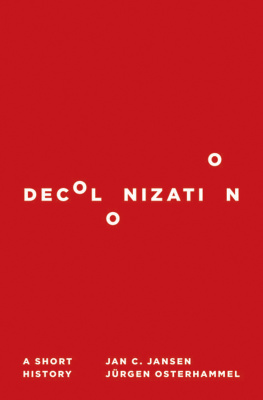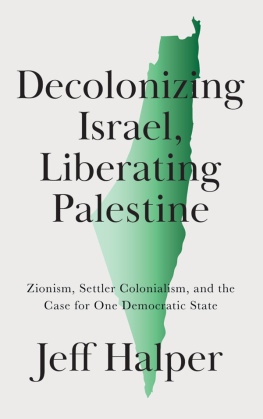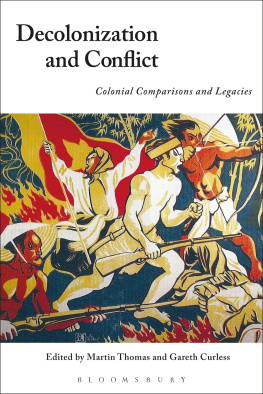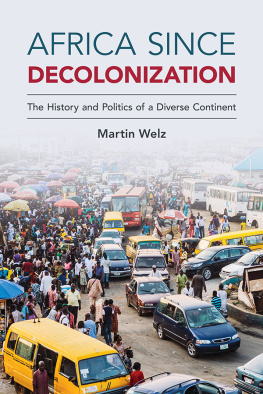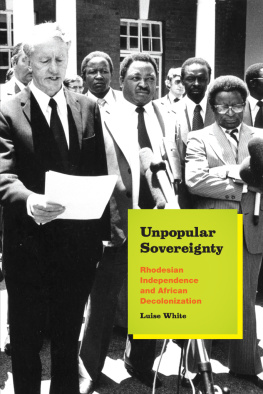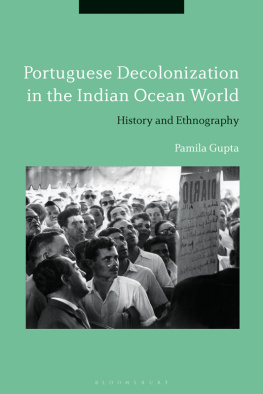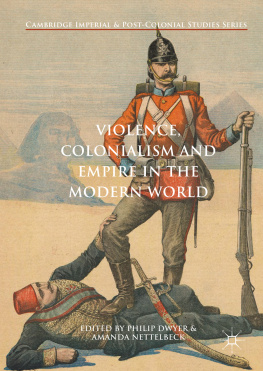
DECOLONIZATION A SHORT HISTORY
DECOLONIZATION A SHORT HISTORY
JAN C. JANSEN
JRGEN OSTERHAMMEL
TRANSLATED BY JEREMIAH RIEMER
PRINCETON UNIVERSITY PRESS
PRINCETON AND OXFORD
First published in German as Dekolonisation by Jan C. Jansen and Jrgen Osterhammel, Verlag C.H. Beck oHG, Mnchen 2013
English translation copyright 2017 by Princeton University Press
Requests for permission to reproduce material from this work should be sent to Permissions, Princeton University Press
Published by Princeton University Press
41 William Street, Princeton, New Jersey 08540
In the United Kingdom: Princeton University Press
6 Oxford Street, Woodstock, Oxfordshire OX20 1TR
press.princeton.edu
Jacket design by Chris Ferrante
All Rights Reserved
Library of Congress Cataloging-in-Publication Data
Names: Jansen, Jan C., author. | Osterhammel, J?urgen, author.
Title: Decolonization : a short history / Jan C. Jansen and Jurgen Osterhammel.
Other titles: Dekolonisation. English
Description: Princeton : Princeton University Press, [2017] | Translated from German. | Includes bibliographical references and index.
Identifiers: LCCN 2016037948 | ISBN 9780691165219 (hardcover : alk. paper)
Subjects: LCSH: DecolonizationHistory20th century.
Classification: LCC JV151 .J3613 2017 | DDC 325/.309dc23
LC record available at https://lccn.loc.gov/2016037948
British Library Cataloging-in-Publication Data is available
This book has been composed in Sabon Next LT Pro and Gotham
Printed on acid-free paper.
Printed in the United States of America
10 9 8 7 6 5 4 3 2 1
CONTENTS
PREFACE
IF THE PRESENT is an unprecedented age of globalization, with all its contradictions and countervailing tendencies, we also live in the aftermath of earlier upheavals that marked the second half of the twentieth century. One of those upheavals was the rapid transformation of a handful of colonial empires into a plural world of sovereign states. A brief glance around the world reveals the lingering aftereffects of empires demise: Australians arguing about replacing the British monarch as their sovereign; the North Korean government setting the clock back in 2015 as a means to eradicate a legacy of Japanese imperialism; Zimbabweans arguing about disinterring and repatriating Cecil Rhodess remains to England; observers debating if the 2011 Tunisian revolution marked the last stage in the long decolonization of that country; social scientists and historians calling for truly decolonial analytical perspectives and mental attitudes; and a special committee at the United Nations updating year after year a list of countries awaiting their release into independent statehood. Reverberations of decolonization such as these prompt us to remember that the contemporary world was built out of the ruins of European, and some non-European, intercontinental empires.
The pallid term decolonization refers to a particularly unwieldy process in twentieth-century history. A plethora of meanings, ambiguities, conflicting memories, and competing narratives makes it the focus of political and scholarly disagreements. Was decolonization essentially about obtaining national independence from alien rule, or at least to the same degree about economic or cultural self-determination? Is it tied to colonialism as a system of rule, or does it also apply to noncolonial contexts? When did it start, and when, if ever, did it end? Can it best be understood through a longue dure approach going back to the beginning of the twentieth century, or is it rather the baffling rapidity of imperial collapse in the decades after 1945 that claims our primary attention? And, in hindsight, was it a failure or a success? Are a great deal of the current problems in the world to be blamed on a botched or incomplete decolonization?
This book does not claim to settle these controversies once and for all. Rather, it presents the issues as clearly as possible and outlines the most important arguments. In place of a detailed and full-blooded story, it seeks to provide a concise and comparative interpretation of decolonization that inserts this dramatic process of global change into the wider history of the twentieth century. Even if decolonizations most dramatic and decisive hot phase is to be found in the short period of roughly three decades following the Second World War, it cannot be understood without the longer history of anticolonial unrest and late-colonial transformations since the First World War, nor can it be fully appreciated without the various reverberations leading up to the present. Along with this long-term approach, we regard decolonization as a multifaceted process that stretched across various fields in addition to politics, such as the economy, culture, or the normative foundations of the international community. Instead of giving primacy to a single perspective on the course of events, we believe that one needs to combine local, regional, imperial, and international levels of analysis. In developing our own understanding of what is a potentially boundless topic, we are happy to draw on an enormously rich treasure of historical scholarship coming from many different countries. However, the huge variety of detailed research on the end of empires has rarely been accompanied, at least during the past two decades, by new attempts at interpretation and synthesis.
This brief book grew out of the collaboration of the authors on a book on colonialism, published in Germany in 2012. Originally intended merely to be the subject of a concluding chapter in that book, decolonization assumed a life of its own and seemed to merit a separate and more comprehensive treatment. Our Dekolonisation came out in German in 2013. For the present English language edition, we revised the entire text and expanded its length by roughly a quarter. Still, the book retains much of its original character. Part introductory survey, part historical essay, it is analytical rather than narrative in its overall design. This implies that it does not offer an exhaustive or encyclopedic country-by-country or empire-by-empire treatment of decolonization. While we seek to bring out the various trajectories and patterns of decolonization in the different parts of the world, most of the chapters delve into systematic aspects. This approach allows us to discuss more methodically, for instance, evolving norms of international legitimacy and different explanatory models; the nature of anticolonialism and late colonialism, and their impact on the decolonization process; the economic dimensions of decolonization; the place of decolonization in world politics; the intellectual history of decolonization; and the manifold legacies and memories it left both in former colonizing and colonized societiesfields where a lot of exciting work is currently in progress. The format forces us to be selective with the cases studied and restrictive with regard to the level of detail presented to the reader. While, for example, the decolonization of Cyprus leading to the Mediterranean islands independence in 1960 triggered a serious and violent international crisis with lasting consequences for the country and the European Union, it cannot possibly be discussed in its full complexity. Likewise, there will only be sketchy material on the leading historical figures and characters, on the celebrated heroes and villains of decolonization who still populate the popular memory of this epoch.
For this edition, we have thoroughly revised and supplemented the original book and updated and revised the bibliography and references so as to make the book more accessible for English-speaking readers. Some first-rate references in languages other than English have been retained, though, reminding us that the history of decolonization cannot be a monolingual enterprise.
Next page
